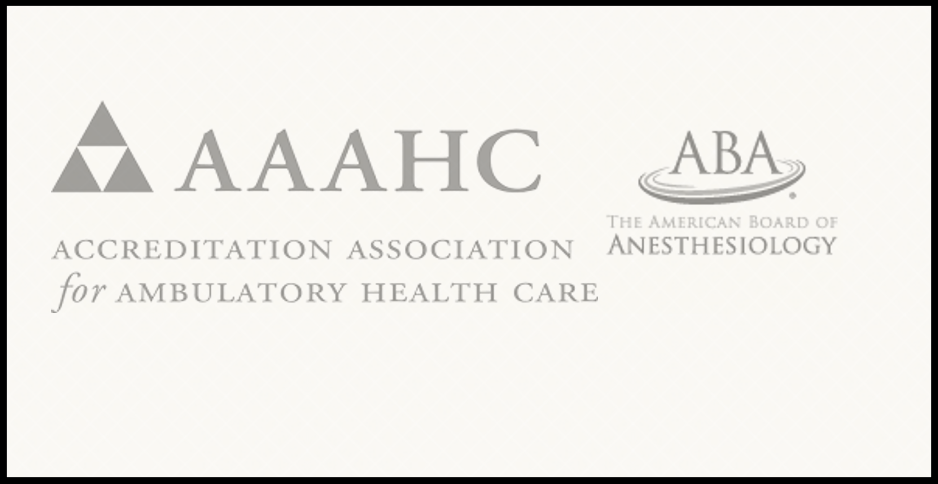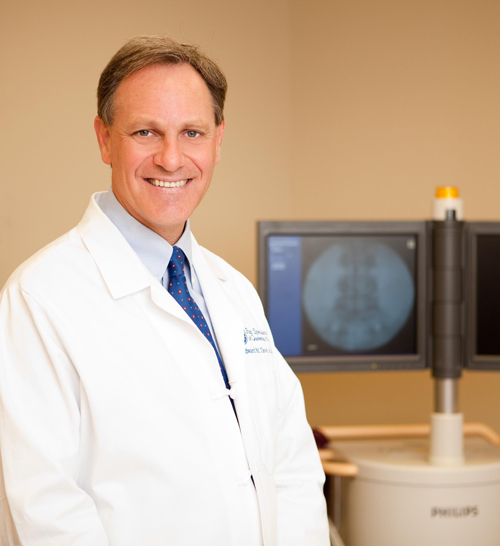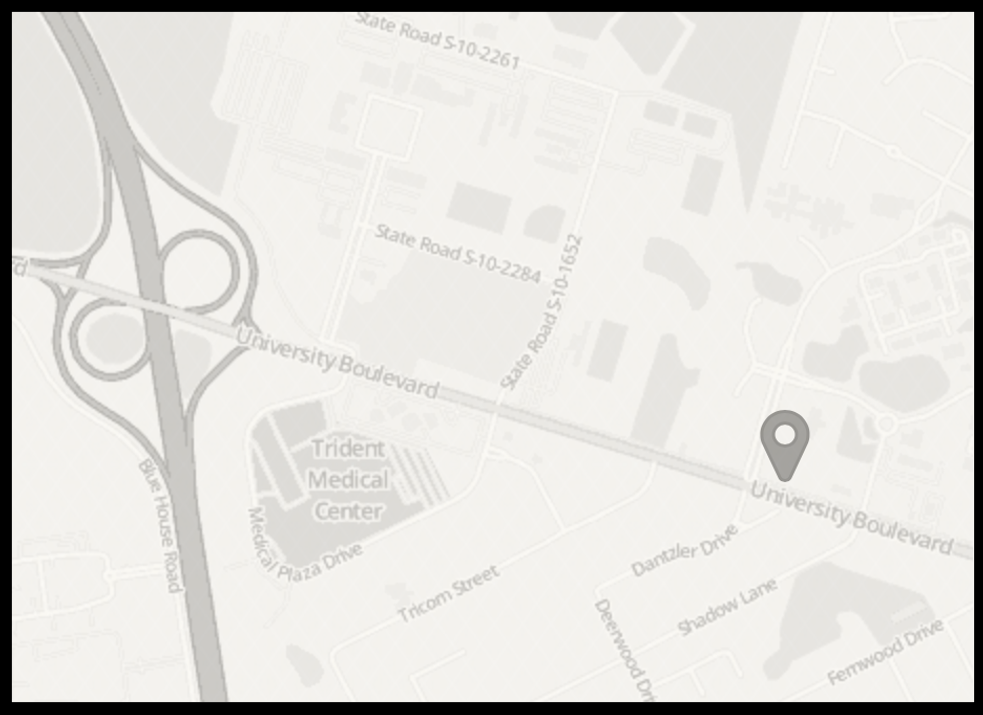Workers’ Compensation

WORKERS’ COMP & PAIN MANAGEMENT
At Pain Specialists of Charleston, we understand good health is good business. That’s why we’re here to assist with Workers’ Compensation claims and treatment.
Our care team will treat your employee or client from the injury onset to discharge, ensuring a safe and comprehensive recovery. Our board-certified physicians provide compassionate medical care to your injured worker and our dedicated WC Staff ensures that all parties–ranging from the patient to the employer, legal team, and insurance carriers–are kept up to date with their treatment plan, progress, and status.
In addition, we work closely with the patient, the employer, and the insurance carrier to identify appropriate work restrictions and light-duty assignments if necessary.
We understand the value of work-injury prevention and educate our patients in proper body mechanics, ergonomics, and post-injury rehabilitation. Additionally, our physicians are trained in workers’ compensation procedures and guidelines to ensure our communications are clear and informative.
Helpful Resources:
NEW DEDICATED CONTACT LINE FOR WC: 1-800-511-SCWC (1-800-511-7292)
NEW DEDICATED EMAIL FOR WC: WC@PAINCHAS.COM

Request Appointment | Contact Us | Meet Pain Doctors
CONDITIONS WE MANAGE
At Pain Specialists of Charleston, our board-certified pain management physicians support common pain conditions including:
- Knee Pain
- Chest Pain
- Shoulder Pain
- Back Pain
- Hip Pain
- Neck Pain
- & More
TREATMENTS WE OFFER
Treatment of chronic pain is usually provided by a particular type of physician known as a pain management specialist. Pain management specialists usually come from the medical discipline of anesthesiology.
At Pain Specialists of Charleston, our board-certified pain management physicians are equipped with advanced technology and techniques for quality pain treatment including:
- Acupuncture
- Biofeedback
- Cognitive behavioral therapy
- Massage
- Meditation
- & More
Workers’ compensation is required to provide all reasonable and necessary treatment for a work-related injury. This can include treatment to provide relief from the effects of the injury, such as chronic pain

WHAT IS A PHYSICAL EXAM FOR PAIN MANAGEMENT
The pain physical examination is a comprehensive neuromusculoskeletal evaluation that begins with general observations and a mental status examination. This is followed by inspection; palpation; range-of-motion (ROM) evaluation; and testing of strength, sensation, and reflexes.
COMMON WORKPLACE ACCIDENT CHRONIC PAINS
Here’s a list of chronic pains that can result from workplace accidents:
- Back Pain:
- Resulting from strains, sprains, herniated disks, or fractures in the back.
- Neck Pain:
- Often caused by whiplash injuries, cervical spine damage, or strain from repetitive motions.
- Shoulder Pain:
- Resulting from rotator cuff injuries, dislocations, or repetitive strain.
- Knee Pain:
- Caused by ligament tears, meniscus injuries, or repetitive stress on the knee joint.
- Chronic Headaches:
- Resulting from head injuries, concussions, or muscle tension.
- Joint Pain:
- Including pain in the hips, elbows, wrists, or ankles due to arthritis, injuries, or repetitive strain.
- Nerve Pain:
- Resulting from nerve damage, such as sciatica, carpal tunnel syndrome, or nerve compression injuries.
- Muscular Pain:
- Including muscle strains, spasms, or myofascial pain syndrome.
- Foot Pain:
- Caused by fractures, sprains, plantar fasciitis, or repetitive strain on the feet.
- Arm and Hand Pain:
- Resulting from repetitive strain injuries like carpal tunnel syndrome, tendonitis, or nerve compression.
- Pelvic Pain:
- Including pain in the pelvis, hips, or groin area due to muscle strain, nerve damage, or pelvic injuries.
- Leg Pain:
- Resulting from injuries, nerve damage, or conditions like deep vein thrombosis or sciatica.
- Wrist Pain:
- Often caused by repetitive strain injuries, carpal tunnel syndrome, or fractures.
- Elbow Pain:
- Including conditions like tennis elbow or golfer’s elbow resulting from repetitive motions or strain.
- Spinal Cord Pain:
- Resulting from spinal cord injuries, nerve damage, or conditions like spinal stenosis or degenerative disc disease.
COMMON EXAMS FOR CHRONIC PAINS
Doctors during workers’ comp claims can run many different tests, most of which are aimed at excluding other possible causes of pain, such as:
- X-rays, which can reveal microfractures or bone density loss.
- MRIs, which can show damage or irregularities in soft tissue.
- Blood tests, which can exclude infection or inflammation as a cause of pain.
- Ultrasound scans, which can rule out blood clots.
- Electrodiagnostic testing, which measures the electrical activity of body parts to determine whether nerves or pain receptors are being stimulated.
MEET DOCTOR EDWARD M. TAVEL, JR., MD
- Over 20+ Years of Specialty Training
- Double-Board Certified in Anesthesiology and Pain Management
- Completed Training at One of the Top Hospitals in the Southeast, University of North Carolina Hospitals
AWARDS & ASSOCIATIONS

AS SEEN ON

MAIN WORKPLACE INJURY REQUIRING PAIN MANAGEMENT: BACK PAIN
On the very top of the list of most common work-related injuries in the US are back injuries.
These injuries include strains and sprains from lifting, pulling, or otherwise maneuvering heavy objects, as well as damage to the spine like slipped or herniated disks and fractured vertebrae.
These are also among the leading work-related injuries that require long-term pain management treatment, including physical therapy, prescription medication, and even surgery. You may be dealing with this pain for the rest of your life, and it can limit your ability to function at work. With a back injury that leads to chronic pain, you may never be able to return to your former work duties, and you may end up out of work or working in a lower-paying light-duty job.
LONG-TERM PAIN TREATMENT UNDER WORKERS’ COMP
Various injuries from work can lead to long-term pain, whether it’s tissue damage (nociceptive) or nerve damage (neuropathic), and South Carolina workers’ compensation typically covers treatment for such pain. Treatment options for long-term pain management:
- Therapy: Physical therapy and aquatic therapy can be utilized to manage long-term pain.
- Surgery: Some individuals might require surgery to alleviate their pain.
- Psychological support: Psychological support and treatment are often necessary to help patients learn coping mechanisms like relaxation techniques to manage long-term pain.
- Prescriptions.
EXAMPLES OF TOTAL & PARTIAL DISABILITY
Total Disability Examples:
- Spinal cord injury resulting in complete paralysis.
- Injury leading to total blindness.
- Traumatic brain injury (TBI).
- Cancer due to exposure to toxic chemicals.
- Injury causing complete hearing loss.
- Injury preventing walking or severely limiting mobility.
Partial Disability Examples:
- Back injuries causing chronic pain but still allowing some level of mobility.
- Carpal tunnel syndrome affecting hand movement but not rendering the individual completely unable to work.
- Amputation of a limb, impacting mobility and function but not rendering the individual completely disabled.
- Hearing loss affecting communication but not completely eliminating the ability to work.
- Vision damage reducing visual capabilities but not resulting in total blindness.

Request Appointment | Contact Us | Meet Pain Doctors
FAQs
CAN DOCTORS TELL HOW MUCH PAIN YOU ARE IN?
Pain is subjective and currently, there’s not an accurate method to quantify a patient’s pain. We use a pain scale to help our physicians better understand your pain levels:
- 0: No pain
- 1-3: Low pain
- 4-7: Moderate pain
- 8-10: Severe pain
It’s important to communicate with your physician in detail about your pain and symptoms. This will allow them to create the most effective treatment plan for you.
CAN YOU GET COMPENSATION FOR CHRONIC PAIN?
You may be able to claim workers’ compensation if your chronic pain is from work-related wear and tear or injuries that have caused you to have time off work or medical treatment.
HOW MANY MONTHS IS CONSIDERED CHRONIC PAIN?
Chronic pain is typically considered any pain that lasts longer than three months.
WHAT IS A HIGH PAIN SCORE?
On the numerical pain scale used at Pain Specialists of Charleston, anything from 8-10 is considered a high pain score.
WHAT DOES COMPLEX REGIONAL PAIN SYNDROME MEAN?
Complex Regional Pain Syndrome (CPRS) is essentially a delayed reaction after an injury, heart attack, or stroke. It is a form of chronic pain that is out of proportion to the pain of the initial injury. While the original issue may have healed, the pain persists.
WHAT TYPES OF COMPLEX REGIONAL PAIN SYNDROME ARE THERE?
There are two types of CRPS:
- CRPS-1, sometimes called reflex sympathetic dystrophy (RSD). This results from strains, burns, or tears in soft tissues like muscles, ligaments, tendons, and skin. It can lead to chronic arthritis, tendonitis, or bursitis.
- CRPS-2, sometimes called causalgia. This is a result of an impact on or penetration of a major nerve group. It might surface as soon as you’re injured or appear months afterward.
Fibromyalgia is often considered a type of CRPS, although it is not. It is a chronic pain disorder characterized by weakness, muscle spasms, and extreme sensitivity to touch or pressure. It can appear after an injury or accident, but it is also genetic.
WHAT ARE THE SYMPTOMS OF COMPLEX REGIONAL PAIN SYNDROME?
Symptoms of Complex Regional Pain Syndrome include:
- Joint swelling and stiffness
- Muscle spasms or atrophy
- Abnormal skin color or texture
- Sensitivity to touch or extreme temperatures
- Burning or throbbing pain in the affected area
- Changes in hair or nail growth
- Tendon and muscle contractions
If you’re experiencing these symptoms after you’ve already been awarded benefits for your original injury, it can be difficult to convince the insurer that you’re still suffering. You might be accused of trying to “double dip” and have your claim for CRPS denied. We’ll work to help prove your claim.
WHY ARE WORKERS’ COMP CLAIMS FOR CHRONIC PAIN SO COMPLICATED?
Chronic pain is poorly understood, leading many workers’ compensation insurers and even employers to deny coverage.
This typically means that anyone suffering from chronic pain needs to get an official diagnosis and prove that it is the result of a work-related injury. A concrete link proves that treatment to relieve the pain is necessary for the worker to get their quality of life back.
If the chronic pain is found to be severe enough, an injured worker may even be determined to suffer from a whole-body impairment. This may entitle a worker to permanent partial or total disability benefits if the chronic pain does not respond to treatments or other palliative care.
WHO PAYS FOR MY MEDICAL BILLS IN WORK-RELATED ACCIDENT IN SOUTH CAROLINA?
In South Carolina, your employer has the right to choose the doctor who treats you for work-related accidents. If you choose your own doctor, the medical bills may not be paid by your employer’s representative.
If you require emergency care and you are referred for follow-up treatment, do not assume the referral has been approved. You should always contact your employer or their representative before scheduling an appointment to make sure the additional treatment is authorized.
WHAT BENEFITS AM I ENTITLED TO RECEIVE WITH SC WORKERS’ COMP?
In South Carolina, there are three types of benefits available for work injuries:
- Medical benefits
- Lost wages
- Permanent disability
Under the South Carolina Workers’ Compensation Act, there is no recovery for pain and suffering. The amount of benefits you receive depends on factors, including the average weekly wages you received from all employers before the injury, the extent of your injuries, and your ability to continue working.
We recommend working with your employer, their insurance company, and a workers’ compensation lawyer for proper legal assistance on your claim.
AM I STILL ELIGIBLE FOR SC WORKERS’ COMP BENEFITS AFTER A DOCTOR RELEASES ME?
After being released back to work, you may be eligible for benefits.
Eligibility depends on the specific facts of your claim. When you have completed your treatment–or if your doctor thinks that no other treatment will shorten your period of disability–you will be released from care. You may be given an impairment rating if you sustained a permanent disability as a result of the work accident.
Your employer’s representative may contact you to discuss the settlement of your claim. The amount of permanent disability benefits you are entitled to will depend on the severity of your injury and your average weekly wage. Your employer’s representative may present a settlement offer based on the impairment rating provided by your doctor and the disability rating they think a commissioner might award at a hearing. This will be a percentage of loss of use of a single body part or a percentage of permanent disability to the whole person multiplied by a statutorily determined number of weeks and your average weekly wage.
There are two general types of settlements for South Carolina Workers’ Compensation Claims.
One option allows the employee to seek additional medical care within twelve months of the last payment of compensation if their condition worsens.
The other option resolves the entire claim, including any payments for future medical care. The best settlement option for your claim will depend on the facts of your case and whether you need future medical care.
We recommend working with your employer, insurance company, and a workers’ comp lawyer for proper legal assistance on your claim.
HOW DO YOU DETERMINE IF ANY INJURY IS WORK-RELATED?
Often, injuries in the workplace have cameras and/or witnesses that make proving the cause of the injury rather simple.
But of course, the person may have a pre-existing injury they masked and deliberately stepped off a ladder at work to claim compensation. If someone has an assembly job that features repetitive movements, then complaints about overexertion and wear also make sense.
Or maybe that person is an avid gamer, and the carpal tunnel they are claiming is work-related comes from gaming. Someone working with chemicals known to be able to cause skin irritation may have justifiable cause to claim eczema as work-related. Or maybe that person cures leather and dyes cloth as a hobby, which has exacerbated their eczema more than their job.
Unless there is a very specific injury, preferably with witnesses, work-related is more of a judgment call than an absolute truth.
WHAT HAPPENS IF MY EMPLOYER CAN’T GIVE ME LIGHT DUTIES AFTER WORKPLACE INJURY?
Sometimes when an injured worker is released, they are given a light-duty position. An employer must provide this position if they are able, even if it means creating a new position. If the employer is unable to do this, they will have to pay temporary total disability benefits. These are wage benefits provided at the same rate as a permanent disability (where you cannot return to work at all), being 2/3 of your former average weekly wages, until you can return to work.
WHAT IS THE MOST COMMON WORKPLACE INJURY RESULTING IN LONG-TERM PAIN MANAGEMENT?
In the US, back injuries are the most common type of work-related injury. This includes strains and sprains from lifting, pulling, or otherwise maneuvering heavy objects, as well as damage to the spine like slipped or herniated disks and fractured vertebrae.
These also frequently require long-term pain management treatment, including physical therapy, prescription medication, or even surgery. Many patients deal with this pain for the rest of their lives, and it can limit their ability to function at work. With a back injury that leads to chronic pain, you may never be able to return to your former work duties, and you may end up out of work or working in a lower-paying, light-duty job.
WHAT ARE THE MAIN DISABILITY BENEFITS IN WORKERS’ COMP CLAIMS?
Workers’ comp disabilities are divided into total or partial. Using these four criteria, payments usually fall into one of four categories:
Temporary Total Disability (TTD):
- Provided when a person is unable to perform their regular job duties for a limited time as the result of a work-related injury.
- Example: If a worker breaks their leg on the job and cannot work for 6-8 weeks, they will receive TTD payments while they are out.
- Calculation: TTD payments are typically a percentage of the worker’s average weekly wage, such as 66 ⅔ percent. If the person’s weekly salary was $1500, they would receive $1000 per week for the duration of their disability.
Temporary Partial Disability (TPD):
- TPD benefits are provided when a worker can return to work but cannot perform the same job due to their injury, resulting in lower wages.
- Example: If a worker earns $1500 per week normally but, due to lighter or restricted duties, only earns $1000 per week in a temporary position, they will receive TPD benefits.
- Calculation: TPD payments are a percentage of the difference between the worker’s regular wage and their temporary wage. They receive this in addition to the temporary wage itself.
Permanent Total Disability (PTD):
- PTD benefits are awarded when a worker sustains a permanent injury that renders them unable to perform their previous job duties.
- Example: If a worker’s injury permanently prevents them from working in their previous capacity, they would receive PTD payments, which are usually a percentage of their pre-injury weekly wages.
- Duration: PTD payments may continue for the rest of the worker’s life or until retirement age, depending on state regulations.
Permanent Partial Disability (PPD):
- PPD benefits are provided when a worker has a permanent injury that affects their ability to work, but not completely.
- Example: If a worker can’t return to their former job due to a permanent injury but can still work in some capacity, they would receive PPD benefits.
- Categories: PPD cases may be further divided into scheduled and non-scheduled injuries based on state laws.
- Calculation (Schedule Injury): Workers with scheduled injuries receive a set number of weeks of disability payments based on the body part affected.
- Calculation (Non-scheduled injury): Non-scheduled injuries are assessed based on factors like impairment, loss of earning capacity, and loss of wages, as determined by the state.
In addition to disability payments, most workers’ compensation laws provide vocational rehabilitation for injured workers unable to return to their previous jobs, either due to physical or even mental injury.
WHAT SHOULD I BRING TO MY FIRST VISIT?
Seeking treatment for a work-related injury can be nerve-wracking, but we aim to make the process as stress-free as possible so you can get back to living your life.
At your first visit–which will last approximately 30 minutes–your physician will perform a thorough evaluation that includes walking through your medical history and a physical examination to better understand your pain problem. Depending on your condition, we may recommend a combination of therapies.
To learn more, please read WHAT SHOULD I BRING
DOES PAIN SPECIALISTS OF CHARLESTON OFFER SAME-DAY APPOINTMENTS?
Yes, Pain Specialists of Charleston offer same-day appointments. We are open 5 days a week and may be able to get you seen same-day. Give us a call at (843) 818-1181 to learn more about availability!
IS A REFERRAL REQUIRED FOR A VISIT TO PAIN SPECIALISTS OF CHARLESTON?
No, a referral isn’t necessary for an appointment. We accept self-made appointments as well as referrals. Schedule your first appointment today! BOOK NOW
Meet Our Team!
- Nicole: WC Program Manager
- Angie: WC Coordinator (Pain)
- Ebony: WC Coordinator (Neurology)
- Amanda: New Patient Coordinator
- Audrey: DME Coordinator, Pain Coordinator
- Catherine: RN, PsychSC Coordinator
- Amy: Legal Manager
- Jennifer: Legal Coordinator (Pain)
- Jessica: Legal Coordinator (Neurology, PsychSC)
Points of Contact for Workers’ Compensation
- WC Manager: Nicole Isherwood, extension 205
- WC Coordinator: Angie Buxton, extension, 214
- New Patient Scheduling: Amanda Mueller, extension 217
- Pain WC Coordinator: Audrey Jones, extension 218
- Neurology WC Coordinator: Ebony Downs, extension 311
- PsychSC WC Coordinator: Catherine Singletary RN, extension 127
- Legal Manager: Amy Abrams, extension 303
- WC Legal Coordinator (Pain): Jennifer Mendez, extension 667
- WC Legal Coordinator (Neurology, PsychSC): Jessica Jones, extension 221
HOURS
Open 5 Days a Week!
Monday 8 am-4:30 pm
Tuesday 8 am-4:30 pm
Wednesday 8 am-4:30 pm
Thursday 8 am-4:30 pm
Friday 8 am-1:00 pm
Saturday CLOSED
Sunday CLOSED












